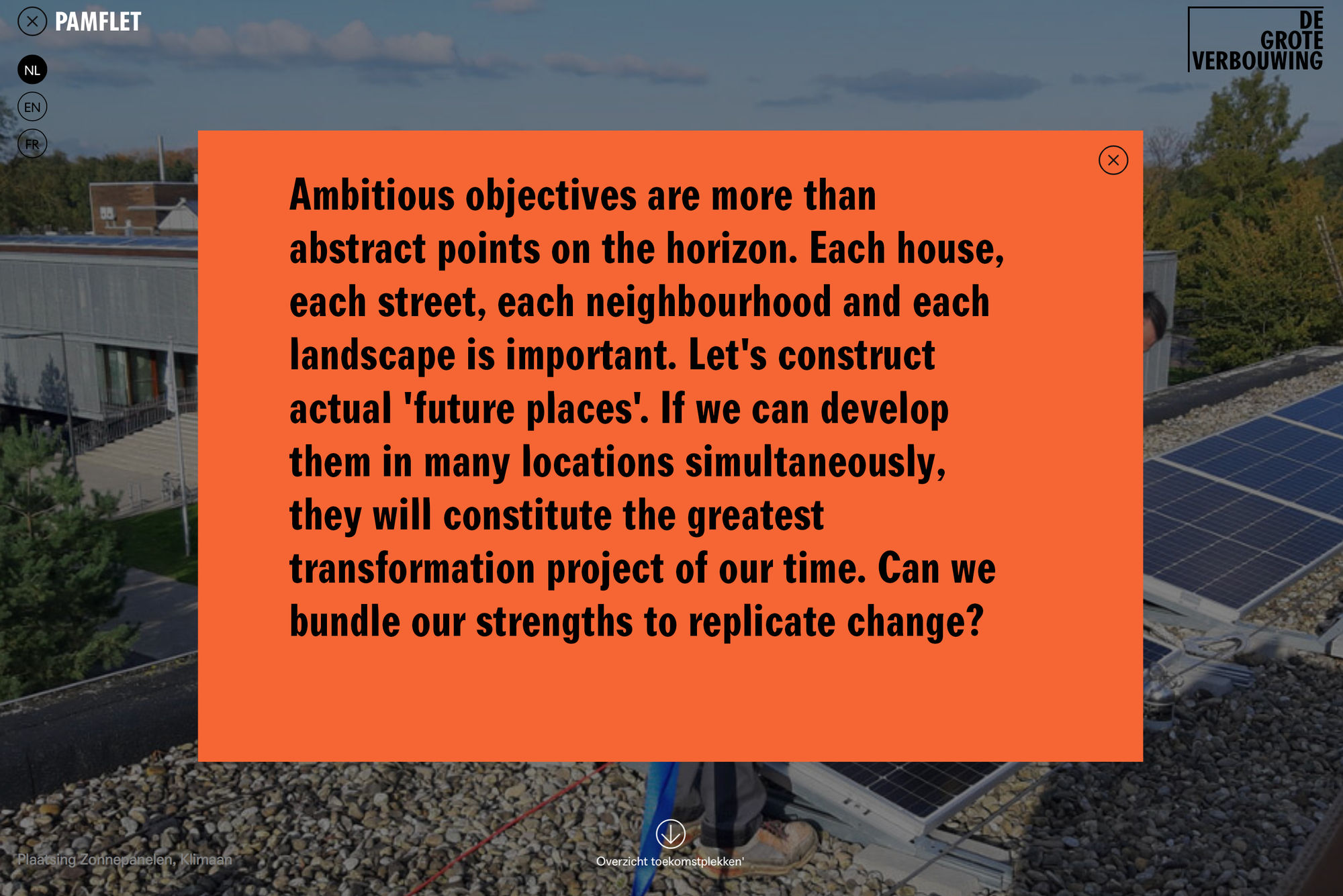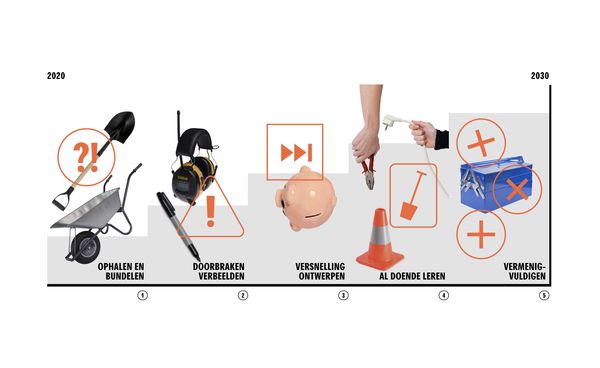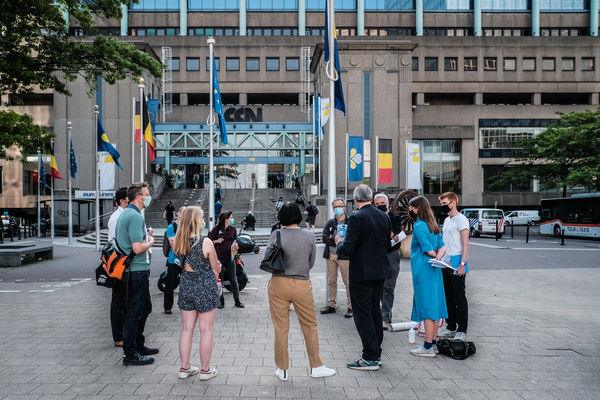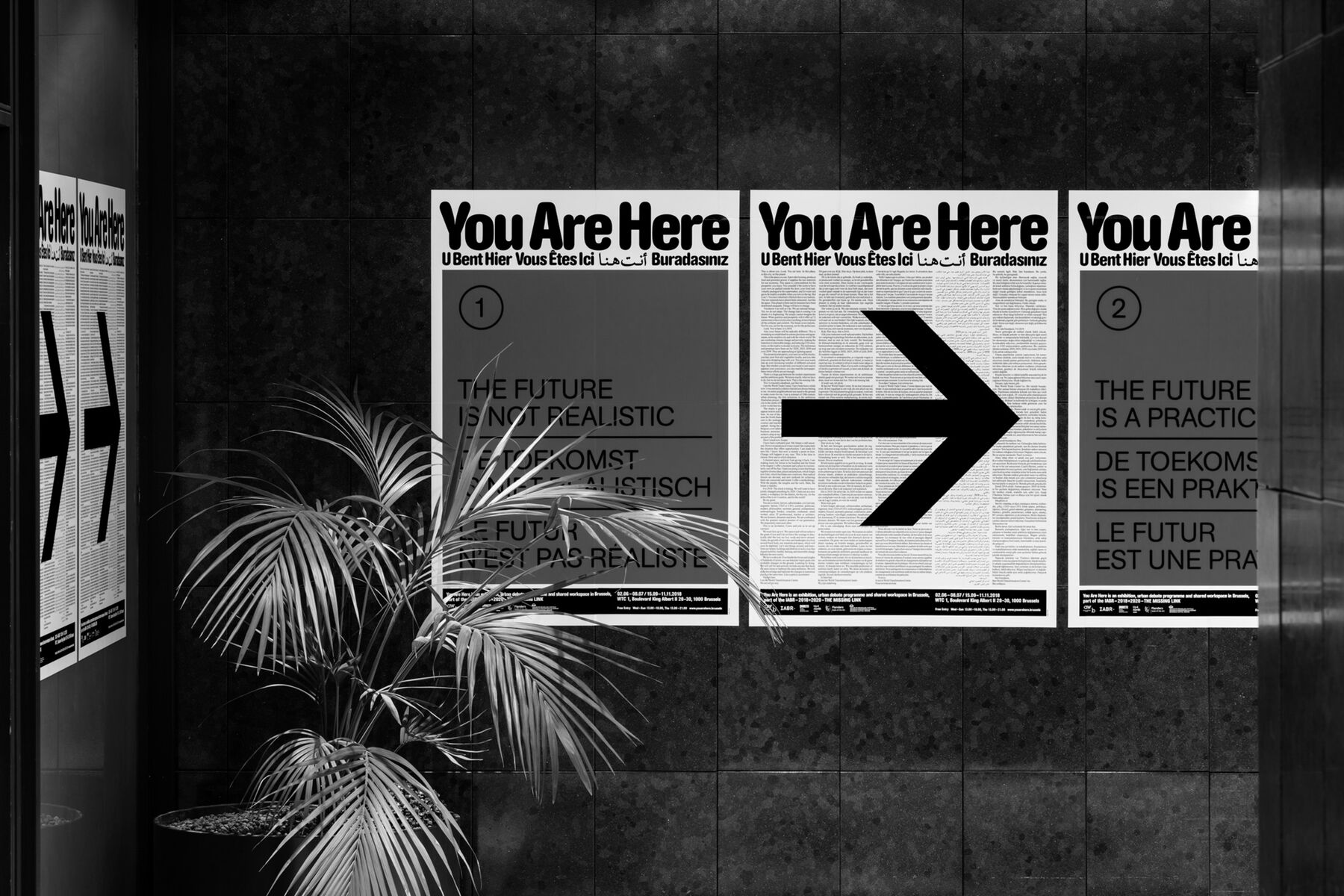Major challenges and ambitious plans are emerging thick and fast: the economic recovery, a competent labour market, social and mental health, a robust healthcare system, the climate and energy transition, a sustainable food chain, strengthening biodiversity, and so on. But how do we shift from 'paper' analyses and intentions to achieving structural and qualitative changes in our neighbourhood, society and economy? All too often, citizens, governments and entrepreneurs wait for one of the other parties to take that essential step. Each one is trapped by its particular sector, interests or powers. No one can achieve the desired changes alone. How do we overcome this together?

We have the major challenges for the future in our sights, but they are bogged down in the pilot project or experimental phase. Mainstreaming these sites requires new forms of cooperation between sectors, policy areas and social actors. A sectoral and polarised field makes cooperation difficult or even impossible. We need a new workspace where insights and capacities can evolve into structural Investment Programmes.
The Great Transformation 2020–2030 is not a government, commercial initiative or a pressure group. It is a social connecting space that supports and accelerates the transformation of our living environment. We bundle the insights and resources of various actors to transform every street, neighbourhood, work environment and landscape into a vital Future Place. We open up the Future Places through learning and public programmes. If we can replicate the transformations in many locations simultaneously, they will constitute the greatest transformation project of our time. They will initiate a chain reaction. There will be new partnerships and social networks, new skills, employment and economic chains, a flourishing ecosystem and a new energy system.
As an independent learning environment, incubator and public programme, The Great Transformation provides enterprising citizens, governments, businesses, financiers, scientists and organisations with the context, the knowledge and the support to work on actual breakthroughs and achievements. Using design and the power of the imagination, we are forming coalitions and formulating strategic sites that can be achieved on a huge scale between now and 2030.
Recently (spring 2020) we publicly kicked off the social initiative The Great Transformation 2020-2030 with the launch of the (online) workspace and broadcasting a series of 'Great Transformation Sessions': together with speakers from different sectors, we talked about building this kind of societal workspace and explored themes such as Food Land and Energy Districts – two thematic fields within the programme of The Great Transformation. At the same time, we organised several walking workshops with a group of experts and we searched for practices in the field: Building Blocks from which we can learn, and Portraits that help us visualise the necessary transitions at eye level. The result - or better: work process - of this is reflected on the online platform.
As a non-profit and future-oriented initiative of a growing group of actors with diverse expertise and social positions, in the coming months we will continue to (re)build structural and qualitative changes in our neighbourhood, society and economy. We are looking for people and parties who want to get involved and We will be exploring the means to take action in the coming decade. For the coming ten years we will build knowledge in an (online) working environment and knowledge library. We will continue to learn from relevant practices, work towards investment programmes for change and realise Future Places.
We believe in the development of a multitude of local projects. This allows people to take ownership and enables us to tackle the challenges while taking action. The transformation of our spatial environment provides the context to change behaviour, create new economic chains or establish new partnerships. If we set up a multitude of projects at the same time, we can achieve unparalleled acceleration. Many small-scale initiatives will collectively form the greatest transformation project of our time. Through discussions and work sessions, we have outlined the first set of Future Places we want to build on.
We were able to launch this initiative thanks to the efforts of many people. The collective agenda of The Great Transformation was drawn up in association with the Project Agency, which includes people with different expertise and backgrounds. Architecture Workroom Brussels facilitates this non-profit initiative with the support of the Flemish Government, the Brussels-Capital Region, the Dutch Government and the New European Bauhaus.


